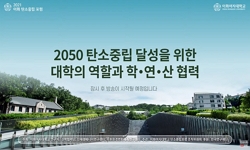Recently, Germany has developed regional express trains (Regional Express, S-Bahn), urban rail (U-Bahn), trams, buses (intercity and Introduced the ‘Deutschland Ticket’ (aka ‘49 Euro Ticket’), which allows unlimited use of all public transport...
http://chineseinput.net/에서 pinyin(병음)방식으로 중국어를 변환할 수 있습니다.
변환된 중국어를 복사하여 사용하시면 됩니다.
- 中文 을 입력하시려면 zhongwen을 입력하시고 space를누르시면됩니다.
- 北京 을 입력하시려면 beijing을 입력하시고 space를 누르시면 됩니다.

사회환경 변화의 대응을 위한 대중교통서비스의 공법적 과제 = Public transportation service's public legal task to respond to changes in the social environment
한글로보기https://www.riss.kr/link?id=A108711724
- 저자
- 발행기관
- 학술지명
- 권호사항
-
발행연도
2023
-
작성언어
Korean
- 주제어
-
등재정보
KCI등재
-
자료형태
학술저널
-
수록면
749-787(39쪽)
- 제공처
-
0
상세조회 -
0
다운로드
부가정보
다국어 초록 (Multilingual Abstract)
Recently, Germany has developed regional express trains (Regional Express, S-Bahn), urban rail (U-Bahn), trams, buses (intercity and Introduced the ‘Deutschland Ticket’ (aka ‘49 Euro Ticket’), which allows unlimited use of all public transportation including general) for 49 euros per month. This is a follow-up policy to the ‘9 Euro Ticket’, which was introduced temporarily from June to August 2022 and sold about 52 million tickets, drawing an explosive response. The ‘9 euro ticket’ was introduced in response to the energy crisis and inflation triggered by the Ukraine-Russia war. Germany had to pay an additional 2.5 billion euros (approximately 3.5 trillion won) for the issuance of the ‘9 euro ticket’, but this reduced the inflation rate by 0.7% and increased the use of public transportation, resulting in 1.8 million tons of carbon emissions. Various social and economic benefits occurred, such as the decrease in air pollution and the level of air pollution by more than 6%.
Through various cases, such a public transportation fare reduction policy not only contributes to environmental problems such as reducing traffic congestion and reducing greenhouse gas emissions by increasing the rate of public transportation use, but also can lead to the effect of suppressing inflation and preserving the income of public transportation users. It's appearing. These successful cases are attracting attention in Korea, and active discussions are underway to promote public transportation through fare reduction policies such as introducing public transportation commuter passes such as the ‘10,000 won transportation pass’ and ‘public transportation 30,000 won free pass’ and expanding the benefits of affordable transportation cards. there is.
This is to provide the minimum public transportation service to guarantee the people's right to move. Public transportation service is a very important public service in daily life, as well as guaranteeing the people's right to move, and must be sufficiently guaranteed in that it is a means of housing, work, and education. Due to this importance, public transportation service is a representative public service that receives financial support from governments around the world. It is also described as a representative service and universal service in the area of consideration for survival. Due to these responsibilities of the state, the state is preparing the basis for providing public transportation services in various individual laws. However, due to the limitations of the public transportation management system, it is becoming an obstacle to vitalizing public transportation.
In this paper, the meaning of public transportation service, guaranteeing the right to move in areas with no transportation rights facing the crisis of local extinction due to population decline, and public transportation service to promote public transportation and strengthen public nature in response to changes in the social environment such as climate crisis and energy crisis Let's look at the legal challenges.
국문 초록 (Abstract)
최근 독일은 지역 간 고속열차(InterCityExpress(ICE), InterCity(IC))를 제외한 광역급행철도(Regional Express), 광역전철(S-Bahn), 도시철도(U-Bahn), 트램, 버스(광역 및 일반) 등의 모든 대중교통을 한 달 49유...
최근 독일은 지역 간 고속열차(InterCityExpress(ICE), InterCity(IC))를 제외한 광역급행철도(Regional Express), 광역전철(S-Bahn), 도시철도(U-Bahn), 트램, 버스(광역 및 일반) 등의 모든 대중교통을 한 달 49유로에 무제한 이용할 수 있는 ‘도이치란트 티켓’(일명 ‘49유로 티켓’)을 도입하였다. 이는 2022년 6월부터 8월까지 한시적으로 도입되어 약 5,200만장이 판매되며 폭발적인 반응을 이끌어 냈었던 ‘9유로 티켓’의 후속 정책이다. ‘9유로 티켓’은 우크라이나-러시아 전쟁으로 촉발된 에너지 위기와 인플레이션에 대응하기 위해 도입되었다. 독일은 ‘9유로 티켓’ 발행으로 25억 유로(약 3조 5천억 원)의 재정을 추가로 부담해야 했지만, 이로 인하여 물가상승률이 0.7% 감소되었으며 대중교통 이용률이 증가함으로써 탄소배출량도 180만 톤이 저감되었고 대기오염 수준도 6% 이상 감소한 것으로 나타나는 등 다양한 사회경제적 편익이 발생하였다.
이와 같은 대중교통 요금 감면 정책은 대중교통 이용률을 끌어올려 교통혼잡도 개선 및 온실가스 감축 등 환경 문제에도 기여할 뿐만 아니라, 물가상승 억제 및 대중교통 이용자의 소득보전 효과를 이끌어 낼 수 있음이 다양한 사례를 통해 나타나고 있다. 이러한 성공사례는 우리나라에서도 주목받으며 ‘1만원 교통패스’, ‘대중교통 3만원 프리패스’와 같은 대중교통 정기권 도입 및 알뜰교통카드 혜택 확대 등 요금 감면 정책을 통한 대중교통 활성화 논의가 활발하게 전개되고 있다.
이는 국민의 이동권 보장을 위해 최소한의 대중교통서비스를 공급하기 위함이다. 대중교통서비스는 국민의 이동권 보장뿐만 아니라 일상생활에 있어 매우 중요한 공공서비스로 주거, 근로, 교육 등의 수단이라는 점에서 충분하게 보장되어야 한다. 이와 같은 중요성으로 인하여 대중교통서비스는 전세계적으로도 정부로부터 재정지원을 받고 있는 대표적인 공공서비스이다. 또한 생존배려영역의 대표적인 서비스이자 보편적서비스로 설명되고 있다. 이러한 국가의 책무로 인해 국가는 다양한 개별 법률들에서 대중교통서비스 제공을 위한 근거를 마련하고 있다. 그러나 대중교통 운영 체계의 한계로 인하여 대중교통 활성화에 걸림돌이 되고 있는 실정이다.
본고에서는 대중교통 서비스의 의의와 인구감소에 따른 지방소멸 위기에 직면한 교통소외지역의 이동권 보장, 기후위기 및 에너지 위기 등 사회환경 변화에 대응하여 대중교통 활성화 및 공공성 강화를 위한 대중교통서비스의 공법적 과제를 살펴보고자 한다.
동일학술지(권/호) 다른 논문
-
- 연세법학회
- 문덕민
- 2023
- KCI등재
-
- 연세법학회
- 김홍기
- 2023
- KCI등재
-
- 연세법학회
- 배중화
- 2023
- KCI등재
-
디지털플랫폼정부의 입법적 과제 - 정부서비스의 연계 및 통합 방안을 중심으로 -
- 연세법학회
- 정원준
- 2023
- KCI등재





 KCI
KCI KISS
KISS






